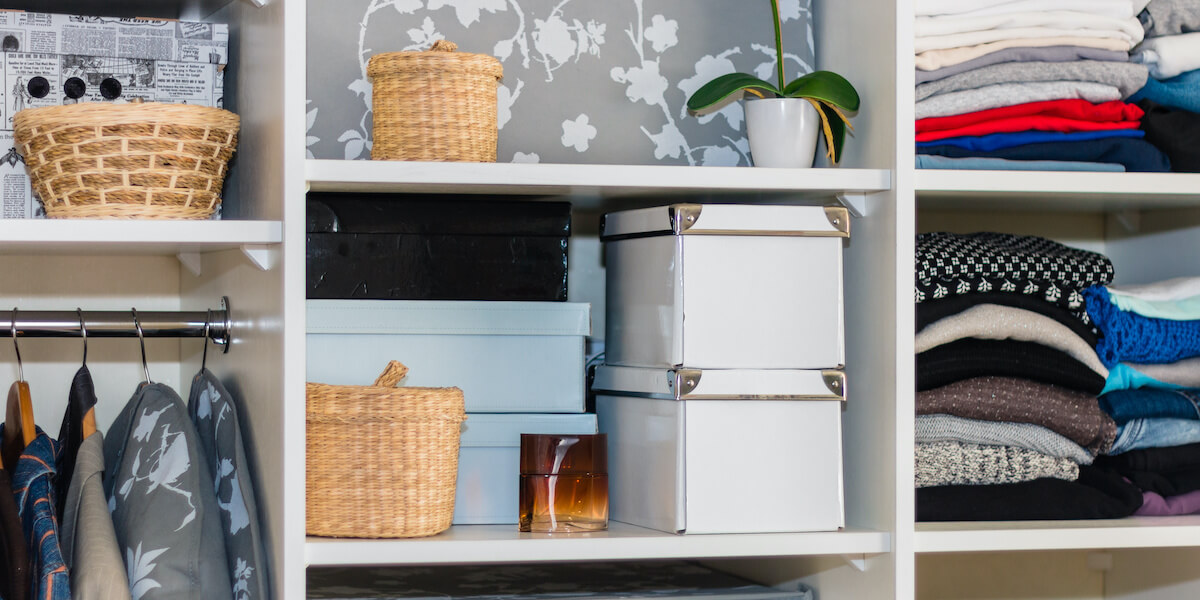Why We Can’t Just Stay Organized?
by Cheryl R. Carter
Many mothers tell me how frustrated they are because they get organized but then go right back to their disorganization. It is not enough to get organized if we cannot stay that way. In fact, that just breeds more frustration and discouragement. Maintaining organization takes skill, tact, and determination.
Address the Root Cause of Disorganization
Addressing the roots of why we are disorganized will help us. Many women embarrassingly confess that they are closet organization-book junkies. They keep reading, thinking something will stick. They try new methods and become frustrated. Then they buy another book, convinced that a new technique will help them get organized. But, if we want to break the cycle from messy to organized, we have to get to the root of why we fluctuate and cannot stay organized. It is not laziness. I have rarely met lazy people. I have met overwhelmed, discouraged, stressed, and unmotivated people, but few lazy people.
Number Your Days
Psalms 90:12 states, “So teach us to number our days, that we may apply our hearts unto wisdom.” It all begins with an appreciation of time. We cannot control the way time flows in or out, but we can manage ourselves and live more purposefully, so we get more out of it.
Be Honest With Yourself
Honesty is at the core of any significant change. In order to stay organized, we must look at our bad habits and adapt systems to take them into account. For instance, if I have the tendency to throw my clothes on the bedroom floor, I might ask myself what the circumstances are that cause me to carelessly toss my garments. Am I tired, stressed, or just plain uninspired? I have to address the reason and then adapt a system that will help me with that behavior and give me incentive not to engage in it. No one can do this for me. I must be honest with myself.
Adapt to Change
Change is inevitable. We have to anticipate the changes and adapt to them to keep ourselves organized. A mother with an active toddler must childproof her home in ways she never could have imagined when that child was an infant who liked to be held. If we insist on operating as we did when our children were infants, we will frustrate ourselves. Changes in our lifestyle, no matter how slight, should trigger changes in the way we organize our environments or manage our homes.
Recognize Your Stress
Stress affects our productivity because it inhibits our ability to reason effectively, and it takes a toll on our bodies. All of us live with some degree of stress; it is virtually unavoidable. However, we need to be aware when we are under stress and adjust ourselves accordingly.
High-stress quotients have been assigned to some things like having a baby, moving, starting a new job, and applying for credit. When we are engulfed in stress, we need to change our systems or relax our standards so that we can still be effective. Once we recognize stress, we are able to realistically determine our limits and organize ourselves around those limits.
When we were going through major renovations on our home, I realized that my meal-management system had to be altered because I did not have time or space for meal preparation. I adapted to a different meal plan, instead of beating myself up about not being able to cook like I used to.
Get an Accountability Partner
We have accountability groups for almost every problem today except organization. That’s a shame because most of us just need a bit of motivation to “clean up our acts.” After all, the last time you had company, you probably cleaned your house from top to bottom. The embarrassment motivated you to get the job done no matter how tired you may have been. A pact with a friend can be a real catalyst for getting organized and staying organized.
Don’t Engage in Self-defeating Talk
Social scientists have long told us that if we say something often enough, we began to believe it. In Proverbs, it states that as a man thinks, so he is (Proverbs 23:7). Sometimes we say things like, “I’ll never be organized; I was born this way.” This kind of unfruitful conversation seals our doom because we see ourselves as a failure, and then we fail―our own words have produced an image of impossibility for us.
Develop Your Own System
People do need systems to help them stay organized. Systems are a way to approach something and to know what to do before events happen. But, the key to a successful system is that it must be individually tailored and easy to implement. It must take into account our frailties and natural tendencies.
Years ago, I got hold of an organization book in which the author suggested purchasing index cards and writing all our household tasks on them. I was not even aware of what household chores I was supposed to be doing in my home! It took me considerable time to figure that out―and then I lost the cards. It was someone else’s system, and it did not work for me.
This is the biggest reason people keep buying organizing books. They are trying to use someone else’s systems, instead of using them as springboards to develop personalized systems. Remember to use any ideas as a launching pad for your own personal system.
Don’t Get Caught in the Blame Game
When we think our problems are other people’s fault, we look for them to change. We make ourselves victims and immobilize ourselves with this thinking. Many women come to my workshop and tell me their problems are entirely their husband’s fault, or that of the kids, or the old dog. You can motivate other people to change; you can invite them to change; you can even beg them to change―but the only person you can actually change is yourself.
Keep a Realistic View
While a perfectly ordered house may be desirable, it might not be possible if you have several children, are homeschooling, and are running a home business. Therefore, you have to relax your standards and adapt to those things you can order. Sometimes we are so idealistic that we do not see reality.
Be Relational but Set Boundaries
The main reason I see mothers failing to stay organized is they do not realize their jobs are relational. It is easy to handle papers, numbers, and stuff, but our kids don’t come in neat little packages to be organized. Children are messy, unpredictable, and illogical.
One client once told me she was constantly annoyed by some of the work-at-home magazines she saw that showed angelic toddlers sitting on their mothers’ laps while they typed. Her children were reckless, she confessed. They banged on her keyboard, rolled on the floor to get her attention, and wanted her to read to them at least five times a day.
As we talked, she realized that she had not been spending enough time with them, and she hadn’t established boundaries that toddlers could understand. Toddlers understand literal physical barriers and concrete, measurable time frames. I suggested using a timer that they could look at and scheduling reading times. She also set up a play office for them. It was simple; once she had accepted that toddlers vie for attention, she was able to spend time with them and adapt her schedule so that they everyone was happier.
Feel the Hurt
This is the harshest concept to accept. Sometimes our disorganization gnaws at us, but it is not bothersome enough for us to really change. We read a book or take a class but make no effort to change because it is not a major issue in our lives. It is like the story about the farmer and the old hound dog who is sitting on the porch howling in pain. A neighbor passes by and asks why the dog is howling―obviously, he is in pain. The farmer replies that he is sitting on an old nail. “Why doesn’t he get up?” asks the neighbor. “I guess it does not hurt enough yet,” remarks the farmer. Our disorganization has to hurt us enough to make us really want to change; then we will do anything to resolve the issue.Cheryl R. Carter is a reformed “messy” who occasionally still falls off the proverbial organizing horse. This excerpt is a portion from her organizing book for mothers, How to Get Organized and Stay Organized. This article was printed in the Virginia Home Educator, Fall 2014.









